Established gastroenterologists and fellows offer their thoughts on what skills young GI physicians need to succeed.
Ask a Gastroenterologist is a weekly series of questions posed to GI physicians around the country on business and clinical issues affecting the field of gastroenterology. We invite all gastroenterologists to submit responses. Next week's question: What skills should gastroenterologists look for in a stellar staff?
Please submit responses to Carrie Pallardy at cpallardy@beckershealthcare.com by Thursday, July 31, at 5 p.m. CST.
Question: What skills do young gastroenterologists need to be successful in the current healthcare environment?
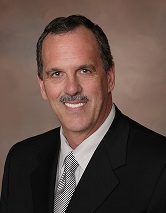 John I. Allen, MD, MBA, AGAF, president of the AGA Institute, professor of medicine and clinical chief, section of digestive diseases, Yale University School of Medicine (New Haven, Conn.):
John I. Allen, MD, MBA, AGAF, president of the AGA Institute, professor of medicine and clinical chief, section of digestive diseases, Yale University School of Medicine (New Haven, Conn.):
• Clinical excellence above all
• Compassionate and clear communication skills for all levels of education and with cultural sensitivity
• Team-based care
• IT expertise
• Time management and prioritization skills
• Social media knowledge
• Ability to find and distill critical knowledge
Mohsina Chaklader, BSc, MD, FRCPC, GreeneStone Healthcare Clinic (Toronto, Ontario): It seems like yesterday I could not wait to complete my gastroenterology fellowship and embark upon my journey as an independent consultant. After working under the shadows of medical consultants for six long years during residency and fellowship, I was more than ready to be independent and was elated when I received my first job offer! However, as my first day of work was approaching, I had sleepless nights. What if a patient asked me a question for which I did not have the answer? Whom would I ask? Now the buck would stop at me.
embark upon my journey as an independent consultant. After working under the shadows of medical consultants for six long years during residency and fellowship, I was more than ready to be independent and was elated when I received my first job offer! However, as my first day of work was approaching, I had sleepless nights. What if a patient asked me a question for which I did not have the answer? Whom would I ask? Now the buck would stop at me.
It is a fact that no one will know everything, but one has to know who to turn to and seek guidance when the need arises. As such, it is important to have a good network of colleagues, mentors and different specialists in the locality. In the past two years of my practice, I have made these connections by attending conferences and lecture series, picking up pearls of wisdom from various physicians along the way. Furthermore, in my determination to help my patients as best as I can, I have transformed myself into a life-long learner. I not only familiarize myself with the latest research, but also take part in research, allowing myself to contribute to academia.
As a young practicing gastroenterologist however, this was only the tip of the iceberg. The greater problems lay in tackling issues like billing codes, incorporation, saving and investing. My husband is in finance and he facetiously recommended that all new practicing physicians should take an 'Investment 101' course. Fellowships excel in teaching the treatment and management of the most critical and rare diseases, but do not touch upon the practical side of being a physician. Issues such as hiring efficient administrative staff, overhead costs, electronic medical records and running an office are black holes to many starting physicians. Medical associations do tend to provide some guidance, but their suggestions regarding these issues barely scratch the surface. As I was scratching my head, my husband, who is my financial advisor, and my experienced accountant were invaluable in helping me navigate through the complexities of financial management. Hence, it is vital to have an experienced accountant and trustworthy financial advisor.
Furthermore, demanding patients, overbooked clinics and conferences can become overwhelming. It is possible to get burnt out easily if one is not taking care of their self. Maintaining a sense of balance is key. For myself, family has been crucial in easing stress and maintaining a sense of balance. As a new gastroenterologist it is important to find one's own mechanisms and spaces to ensure a sense of balance in life.
Finally, being a physician is a privilege we have worked hard for. It is also a responsibility. Our communities depend on us. In our fast paced lives this may not always be top of mind; however, reminding ourselves of the potential for good that we as physicians have the capacity to provide will in the long run lead towards a more fulfilling career and better care for our patients.
Maxwell Chait, MD, FACP, FACG, FASGE, AGAF, ColumbiaDoctors Medical Group (Hartsdale, N.Y.): The three elements of success have not changed: affability,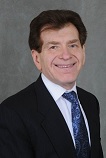 availability and ability. Use of team skills and professionalism to work with others in a collegial manner will help to obtain consultations from other physicians. Being affable is an important skill for the patient to return and refer other patients. Social media may become more important i n the future. Availability through time management and saying 'yes' to that consultation no matter when it occurs if at all possible is so important. To be available to patients when others may not will make that patient return and refer others. Ability showing clinical excellence and maintaining up-to-date skills and knowledge is of utmost importance. IT expertise to manage the cumbersome computer systems and social media that we all must face now and in the future is very important.
availability and ability. Use of team skills and professionalism to work with others in a collegial manner will help to obtain consultations from other physicians. Being affable is an important skill for the patient to return and refer other patients. Social media may become more important i n the future. Availability through time management and saying 'yes' to that consultation no matter when it occurs if at all possible is so important. To be available to patients when others may not will make that patient return and refer others. Ability showing clinical excellence and maintaining up-to-date skills and knowledge is of utmost importance. IT expertise to manage the cumbersome computer systems and social media that we all must face now and in the future is very important.
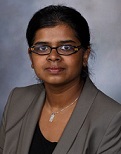 Renumathy Dhanasekaran, MD, Member, AGA Trainee & Young GI Committee, gastroenterology Fellow, Mayo Clinic (Rochester, Minn.): Gastroenterologists graduating from training today face a multitude of unique challenges including changing healthcare economics, mounting patient expectations, arrival of several new drugs and expanding repertoire of endoscopic tools. Although the future continues to look bright for practicing gastroenterologists, adapting early to these changes can make the transition from training to practice smoother. One of the biggest changes as we move forward will be the renewed emphasis on improving the quality of care we provide. Young gastroenterologists should focus on improving their skills not only to provide better quality of care but also to understand the performance measures introduced by the new healthcare law. The next big challenge, in my opinion, is staying abreast with new tools and medications flooding the market. Given the time constraints one faces it would be near impossible to read all the relevant literature on a regular basis, but judicious use of online technology and electronic resources can go a long way in helping with this.
Renumathy Dhanasekaran, MD, Member, AGA Trainee & Young GI Committee, gastroenterology Fellow, Mayo Clinic (Rochester, Minn.): Gastroenterologists graduating from training today face a multitude of unique challenges including changing healthcare economics, mounting patient expectations, arrival of several new drugs and expanding repertoire of endoscopic tools. Although the future continues to look bright for practicing gastroenterologists, adapting early to these changes can make the transition from training to practice smoother. One of the biggest changes as we move forward will be the renewed emphasis on improving the quality of care we provide. Young gastroenterologists should focus on improving their skills not only to provide better quality of care but also to understand the performance measures introduced by the new healthcare law. The next big challenge, in my opinion, is staying abreast with new tools and medications flooding the market. Given the time constraints one faces it would be near impossible to read all the relevant literature on a regular basis, but judicious use of online technology and electronic resources can go a long way in helping with this.
Also, the role of social media has evolved rapidly over the last few years. The way patients access information and communicate with physicians is being significantly influenced by content on the Internet. It is important for young gastroenterologists to join this technological revolution to ensure that the right information is available to patients. Lastly, emphasis on specialization within the field of gastroenterology in areas like advanced endoscopy and hepatology is becoming inevitable. This does lengthen the duration of training, but overall leads to improved patient safety and decreased physician stress. To conclude, young gastroenterologists do face mounting challenges, but early adaptation to the changes can turn these challenges into opportunities.
Edward Sun, MD, Third-Year Gastroenterology Fellow, Stony Brook University Medical Center (Long Island, N.Y.): The Patient Protection and Affordable Care Act and the Health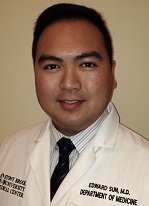 Care and Education Reconciliation Act (collectively, the ACA) established numerous provisions that have impacted the practice of gastroenterology since being instituted in 2010. Emphasizing patient protection, payment reform and performance measurement, the ACA has and will continue to dictate new skills that gastroenterologists will need to develop in order to succeed in the current healthcare environment.
Care and Education Reconciliation Act (collectively, the ACA) established numerous provisions that have impacted the practice of gastroenterology since being instituted in 2010. Emphasizing patient protection, payment reform and performance measurement, the ACA has and will continue to dictate new skills that gastroenterologists will need to develop in order to succeed in the current healthcare environment.
One major paradigm shift will be from the traditional fee-for-service model to systems with "value- based purchasing modifiers" that reward performance over volume. Gastroenterologists will be compensated for providing high quality care at lower cost. Skills that improve efficiency and value will be rewarded. Being able to demonstrate quality care will be necessary. Bundled payments and PQRS measures from CMS are examples of such changes.
One skill crucial to these changes is the ability to integrate the electronic medical record into daily practice in order to provide proper and complete documentation, timely follow up of test results and consultations, and improved patient correspondence and feedback. The skill will be in being able to use technology to our advantage. We have seen greater integration of the EMR already with e-prescribing and the electronic ordering and receipt of test results. We will continue to see the EMR play a larger role in billing based on medical documentation and physician accountability. With the myriad of programs in existence with no practical studies or guidelines on physician efficiency, the burden (at this point) lies with the individual physician to develop his/her own proficiency with each institution or group's EMR.
Gastroenterologists who make proper medical decisions, but who are unable to demonstrate that value in their documentation will invariably be penalized. Developing skills at accurate and complete medical documentation both in our notes and procedure reports will also afford gastroenterologists of today greater legal protection. Such skills will also benefit the larger healthcare institution by allowing for proper DRG assignment and payment to the provider, and further effective and meaningful research, especially at teaching institutions where ICD-9-CM codes are often used in gathering data.
Another skill that will be crucial to thriving in today's healthcare environment will be staying abreast of the most current practice guidelines. In recent years, we have seen more specific and pragmatic guidelines set forth with regards to upper endoscopy in patients with gastroesophageal reflux disease. Screening EGDs are no longer recommended in asymptomatic men less than age 50. We have seen updates with regards to post-polypectomy and colorectal cancer surveillance. These guidelines are already being used to inform payment decisions. The successful gastroenterologist will need to be keenly aware of these updates and incorporate them into daily decision-making in order to demonstrate quality and value in his/her care.
Healthcare reform in the coming decade will emphasize performance measurement, cost and accountability. As a third year gastroenterology fellow, I urge training programs to help young fellows develop these skills early during fellowship. Learning these skills in fellowship will not only help us to be successful gastroenterologists but will position us to be leaders in our industry and help us to make stronger, more informed collaborative decisions in conjunction with lawmakers and payers in the future.
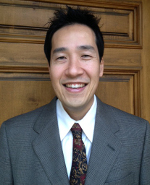 Patrick Takahashi, MD, CMIO and Chief of Gastroenterology Section of St. Vincent Medical Center (Los Angeles): Young gastroenterologists can better position themselves to succeed in the current health climate in a number of ways.
Patrick Takahashi, MD, CMIO and Chief of Gastroenterology Section of St. Vincent Medical Center (Los Angeles): Young gastroenterologists can better position themselves to succeed in the current health climate in a number of ways.
A lot of the keys to success hinge on proper planning from the fellowship standpoint. By deciding early on a particular focus in gastroenterology, they can "carve" out a specialized niche which may be attractive to potential groups looking to hire an individual. That being said, the most valuable trainee is one who is well versed in all phases of gastroenterology, thus proving their value as a commodity for potential groups. By taking advantage of opportunities in fellowship, experience can be garnered in multiple phases of gastroenterology. For example an individual who can both perform therapeutic endoscopy, as well as handle liver issues is in the parlance of sports, a true "first round draft choice."
Affability, ability and availability are also so paramount to the success of a young gastroenterologist. Physicians will always be more apt to refer to someone who embodies these qualities. Working hard always pays dividends, and gastroenterology is no exception.
Young gastroenterologists must also envision their future within a particular group. They should try to gravitate towards "leadership" positions, not only within their own group, but within hospital based committees and outside organizations as well. Networking is obviously a key point in the growth of any practice. However, more importantly, perspective may be gained by sitting on committees and taking part in organizations, thus enhancing one's own clinical practice and delivery of care. An understanding of what will be required by regulatory agencies is of such importance to avoid loss of revenue or penalties.
More Articles on Gastroenterology:
How Can Gastroenterologists Take Part in Population Health Initiatives?
6 Recent GI Field Partnerships
8 Endoscopy Center Administrators to Know
Ask a Gastroenterologist is a weekly series of questions posed to GI physicians around the country on business and clinical issues affecting the field of gastroenterology. We invite all gastroenterologists to submit responses. Next week's question: What skills should gastroenterologists look for in a stellar staff?
Please submit responses to Carrie Pallardy at cpallardy@beckershealthcare.com by Thursday, July 31, at 5 p.m. CST.
Question: What skills do young gastroenterologists need to be successful in the current healthcare environment?
 John I. Allen, MD, MBA, AGAF, president of the AGA Institute, professor of medicine and clinical chief, section of digestive diseases, Yale University School of Medicine (New Haven, Conn.):
John I. Allen, MD, MBA, AGAF, president of the AGA Institute, professor of medicine and clinical chief, section of digestive diseases, Yale University School of Medicine (New Haven, Conn.): • Clinical excellence above all
• Compassionate and clear communication skills for all levels of education and with cultural sensitivity
• Team-based care
• IT expertise
• Time management and prioritization skills
• Social media knowledge
• Ability to find and distill critical knowledge
Mohsina Chaklader, BSc, MD, FRCPC, GreeneStone Healthcare Clinic (Toronto, Ontario): It seems like yesterday I could not wait to complete my gastroenterology fellowship and
 embark upon my journey as an independent consultant. After working under the shadows of medical consultants for six long years during residency and fellowship, I was more than ready to be independent and was elated when I received my first job offer! However, as my first day of work was approaching, I had sleepless nights. What if a patient asked me a question for which I did not have the answer? Whom would I ask? Now the buck would stop at me.
embark upon my journey as an independent consultant. After working under the shadows of medical consultants for six long years during residency and fellowship, I was more than ready to be independent and was elated when I received my first job offer! However, as my first day of work was approaching, I had sleepless nights. What if a patient asked me a question for which I did not have the answer? Whom would I ask? Now the buck would stop at me.It is a fact that no one will know everything, but one has to know who to turn to and seek guidance when the need arises. As such, it is important to have a good network of colleagues, mentors and different specialists in the locality. In the past two years of my practice, I have made these connections by attending conferences and lecture series, picking up pearls of wisdom from various physicians along the way. Furthermore, in my determination to help my patients as best as I can, I have transformed myself into a life-long learner. I not only familiarize myself with the latest research, but also take part in research, allowing myself to contribute to academia.
As a young practicing gastroenterologist however, this was only the tip of the iceberg. The greater problems lay in tackling issues like billing codes, incorporation, saving and investing. My husband is in finance and he facetiously recommended that all new practicing physicians should take an 'Investment 101' course. Fellowships excel in teaching the treatment and management of the most critical and rare diseases, but do not touch upon the practical side of being a physician. Issues such as hiring efficient administrative staff, overhead costs, electronic medical records and running an office are black holes to many starting physicians. Medical associations do tend to provide some guidance, but their suggestions regarding these issues barely scratch the surface. As I was scratching my head, my husband, who is my financial advisor, and my experienced accountant were invaluable in helping me navigate through the complexities of financial management. Hence, it is vital to have an experienced accountant and trustworthy financial advisor.
Furthermore, demanding patients, overbooked clinics and conferences can become overwhelming. It is possible to get burnt out easily if one is not taking care of their self. Maintaining a sense of balance is key. For myself, family has been crucial in easing stress and maintaining a sense of balance. As a new gastroenterologist it is important to find one's own mechanisms and spaces to ensure a sense of balance in life.
Finally, being a physician is a privilege we have worked hard for. It is also a responsibility. Our communities depend on us. In our fast paced lives this may not always be top of mind; however, reminding ourselves of the potential for good that we as physicians have the capacity to provide will in the long run lead towards a more fulfilling career and better care for our patients.
Maxwell Chait, MD, FACP, FACG, FASGE, AGAF, ColumbiaDoctors Medical Group (Hartsdale, N.Y.): The three elements of success have not changed: affability,
 availability and ability. Use of team skills and professionalism to work with others in a collegial manner will help to obtain consultations from other physicians. Being affable is an important skill for the patient to return and refer other patients. Social media may become more important i n the future. Availability through time management and saying 'yes' to that consultation no matter when it occurs if at all possible is so important. To be available to patients when others may not will make that patient return and refer others. Ability showing clinical excellence and maintaining up-to-date skills and knowledge is of utmost importance. IT expertise to manage the cumbersome computer systems and social media that we all must face now and in the future is very important.
availability and ability. Use of team skills and professionalism to work with others in a collegial manner will help to obtain consultations from other physicians. Being affable is an important skill for the patient to return and refer other patients. Social media may become more important i n the future. Availability through time management and saying 'yes' to that consultation no matter when it occurs if at all possible is so important. To be available to patients when others may not will make that patient return and refer others. Ability showing clinical excellence and maintaining up-to-date skills and knowledge is of utmost importance. IT expertise to manage the cumbersome computer systems and social media that we all must face now and in the future is very important. Renumathy Dhanasekaran, MD, Member, AGA Trainee & Young GI Committee, gastroenterology Fellow, Mayo Clinic (Rochester, Minn.): Gastroenterologists graduating from training today face a multitude of unique challenges including changing healthcare economics, mounting patient expectations, arrival of several new drugs and expanding repertoire of endoscopic tools. Although the future continues to look bright for practicing gastroenterologists, adapting early to these changes can make the transition from training to practice smoother. One of the biggest changes as we move forward will be the renewed emphasis on improving the quality of care we provide. Young gastroenterologists should focus on improving their skills not only to provide better quality of care but also to understand the performance measures introduced by the new healthcare law. The next big challenge, in my opinion, is staying abreast with new tools and medications flooding the market. Given the time constraints one faces it would be near impossible to read all the relevant literature on a regular basis, but judicious use of online technology and electronic resources can go a long way in helping with this.
Renumathy Dhanasekaran, MD, Member, AGA Trainee & Young GI Committee, gastroenterology Fellow, Mayo Clinic (Rochester, Minn.): Gastroenterologists graduating from training today face a multitude of unique challenges including changing healthcare economics, mounting patient expectations, arrival of several new drugs and expanding repertoire of endoscopic tools. Although the future continues to look bright for practicing gastroenterologists, adapting early to these changes can make the transition from training to practice smoother. One of the biggest changes as we move forward will be the renewed emphasis on improving the quality of care we provide. Young gastroenterologists should focus on improving their skills not only to provide better quality of care but also to understand the performance measures introduced by the new healthcare law. The next big challenge, in my opinion, is staying abreast with new tools and medications flooding the market. Given the time constraints one faces it would be near impossible to read all the relevant literature on a regular basis, but judicious use of online technology and electronic resources can go a long way in helping with this.Also, the role of social media has evolved rapidly over the last few years. The way patients access information and communicate with physicians is being significantly influenced by content on the Internet. It is important for young gastroenterologists to join this technological revolution to ensure that the right information is available to patients. Lastly, emphasis on specialization within the field of gastroenterology in areas like advanced endoscopy and hepatology is becoming inevitable. This does lengthen the duration of training, but overall leads to improved patient safety and decreased physician stress. To conclude, young gastroenterologists do face mounting challenges, but early adaptation to the changes can turn these challenges into opportunities.
Edward Sun, MD, Third-Year Gastroenterology Fellow, Stony Brook University Medical Center (Long Island, N.Y.): The Patient Protection and Affordable Care Act and the Health
 Care and Education Reconciliation Act (collectively, the ACA) established numerous provisions that have impacted the practice of gastroenterology since being instituted in 2010. Emphasizing patient protection, payment reform and performance measurement, the ACA has and will continue to dictate new skills that gastroenterologists will need to develop in order to succeed in the current healthcare environment.
Care and Education Reconciliation Act (collectively, the ACA) established numerous provisions that have impacted the practice of gastroenterology since being instituted in 2010. Emphasizing patient protection, payment reform and performance measurement, the ACA has and will continue to dictate new skills that gastroenterologists will need to develop in order to succeed in the current healthcare environment. One major paradigm shift will be from the traditional fee-for-service model to systems with "value- based purchasing modifiers" that reward performance over volume. Gastroenterologists will be compensated for providing high quality care at lower cost. Skills that improve efficiency and value will be rewarded. Being able to demonstrate quality care will be necessary. Bundled payments and PQRS measures from CMS are examples of such changes.
One skill crucial to these changes is the ability to integrate the electronic medical record into daily practice in order to provide proper and complete documentation, timely follow up of test results and consultations, and improved patient correspondence and feedback. The skill will be in being able to use technology to our advantage. We have seen greater integration of the EMR already with e-prescribing and the electronic ordering and receipt of test results. We will continue to see the EMR play a larger role in billing based on medical documentation and physician accountability. With the myriad of programs in existence with no practical studies or guidelines on physician efficiency, the burden (at this point) lies with the individual physician to develop his/her own proficiency with each institution or group's EMR.
Gastroenterologists who make proper medical decisions, but who are unable to demonstrate that value in their documentation will invariably be penalized. Developing skills at accurate and complete medical documentation both in our notes and procedure reports will also afford gastroenterologists of today greater legal protection. Such skills will also benefit the larger healthcare institution by allowing for proper DRG assignment and payment to the provider, and further effective and meaningful research, especially at teaching institutions where ICD-9-CM codes are often used in gathering data.
Another skill that will be crucial to thriving in today's healthcare environment will be staying abreast of the most current practice guidelines. In recent years, we have seen more specific and pragmatic guidelines set forth with regards to upper endoscopy in patients with gastroesophageal reflux disease. Screening EGDs are no longer recommended in asymptomatic men less than age 50. We have seen updates with regards to post-polypectomy and colorectal cancer surveillance. These guidelines are already being used to inform payment decisions. The successful gastroenterologist will need to be keenly aware of these updates and incorporate them into daily decision-making in order to demonstrate quality and value in his/her care.
Healthcare reform in the coming decade will emphasize performance measurement, cost and accountability. As a third year gastroenterology fellow, I urge training programs to help young fellows develop these skills early during fellowship. Learning these skills in fellowship will not only help us to be successful gastroenterologists but will position us to be leaders in our industry and help us to make stronger, more informed collaborative decisions in conjunction with lawmakers and payers in the future.
 Patrick Takahashi, MD, CMIO and Chief of Gastroenterology Section of St. Vincent Medical Center (Los Angeles): Young gastroenterologists can better position themselves to succeed in the current health climate in a number of ways.
Patrick Takahashi, MD, CMIO and Chief of Gastroenterology Section of St. Vincent Medical Center (Los Angeles): Young gastroenterologists can better position themselves to succeed in the current health climate in a number of ways.A lot of the keys to success hinge on proper planning from the fellowship standpoint. By deciding early on a particular focus in gastroenterology, they can "carve" out a specialized niche which may be attractive to potential groups looking to hire an individual. That being said, the most valuable trainee is one who is well versed in all phases of gastroenterology, thus proving their value as a commodity for potential groups. By taking advantage of opportunities in fellowship, experience can be garnered in multiple phases of gastroenterology. For example an individual who can both perform therapeutic endoscopy, as well as handle liver issues is in the parlance of sports, a true "first round draft choice."
Affability, ability and availability are also so paramount to the success of a young gastroenterologist. Physicians will always be more apt to refer to someone who embodies these qualities. Working hard always pays dividends, and gastroenterology is no exception.
Young gastroenterologists must also envision their future within a particular group. They should try to gravitate towards "leadership" positions, not only within their own group, but within hospital based committees and outside organizations as well. Networking is obviously a key point in the growth of any practice. However, more importantly, perspective may be gained by sitting on committees and taking part in organizations, thus enhancing one's own clinical practice and delivery of care. An understanding of what will be required by regulatory agencies is of such importance to avoid loss of revenue or penalties.
More Articles on Gastroenterology:
How Can Gastroenterologists Take Part in Population Health Initiatives?
6 Recent GI Field Partnerships
8 Endoscopy Center Administrators to Know


